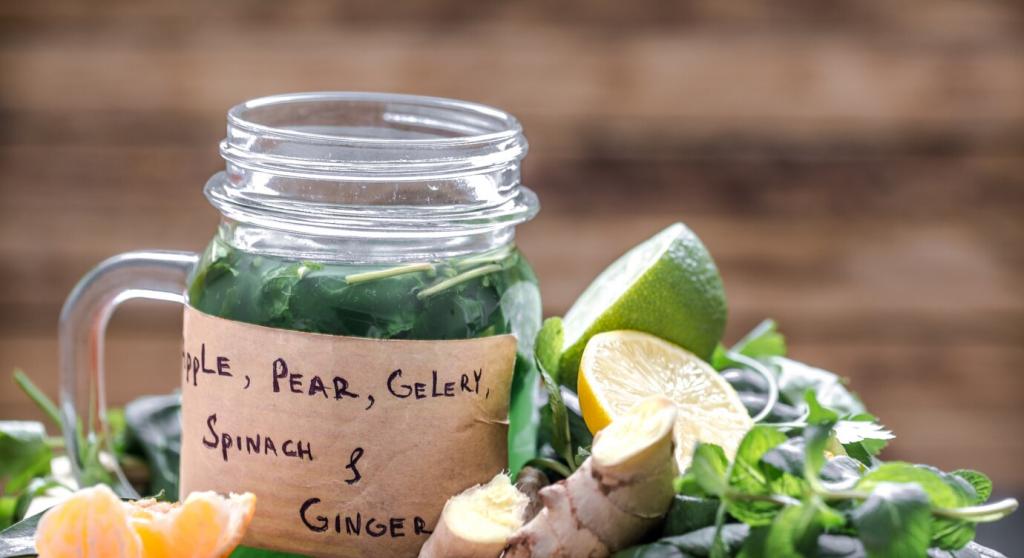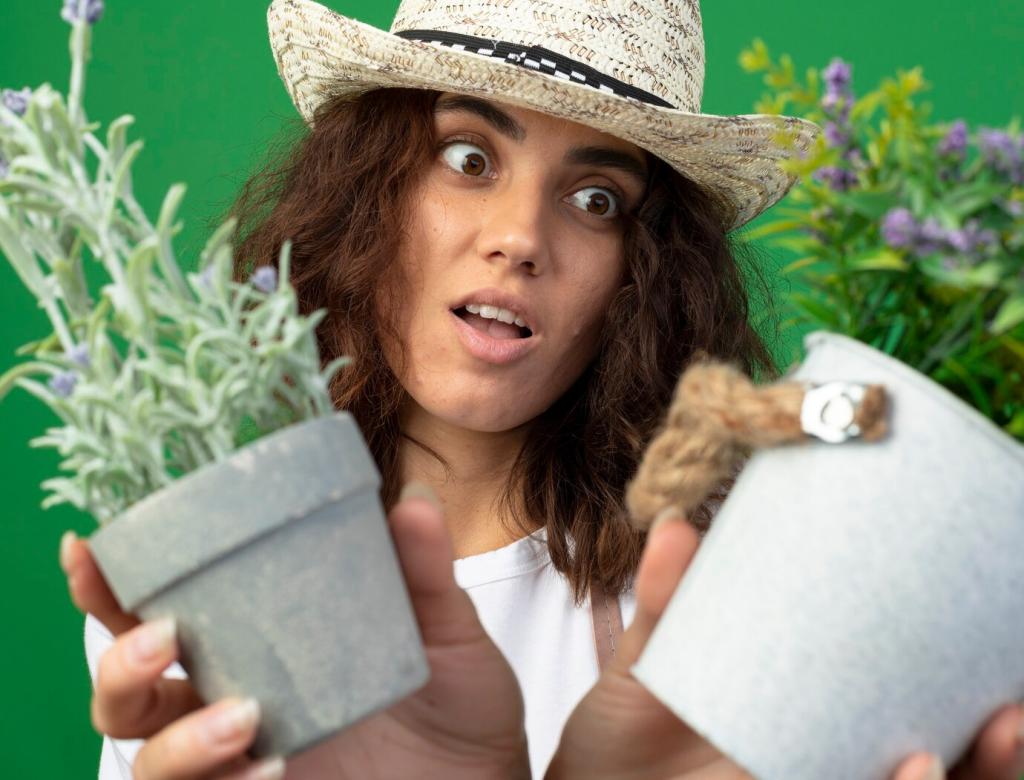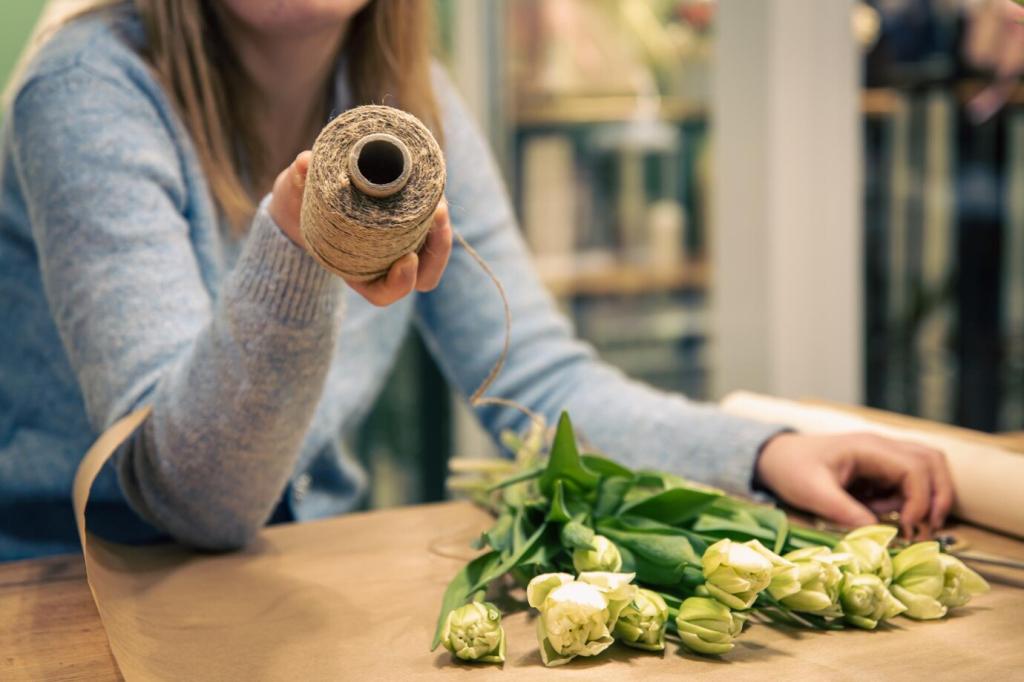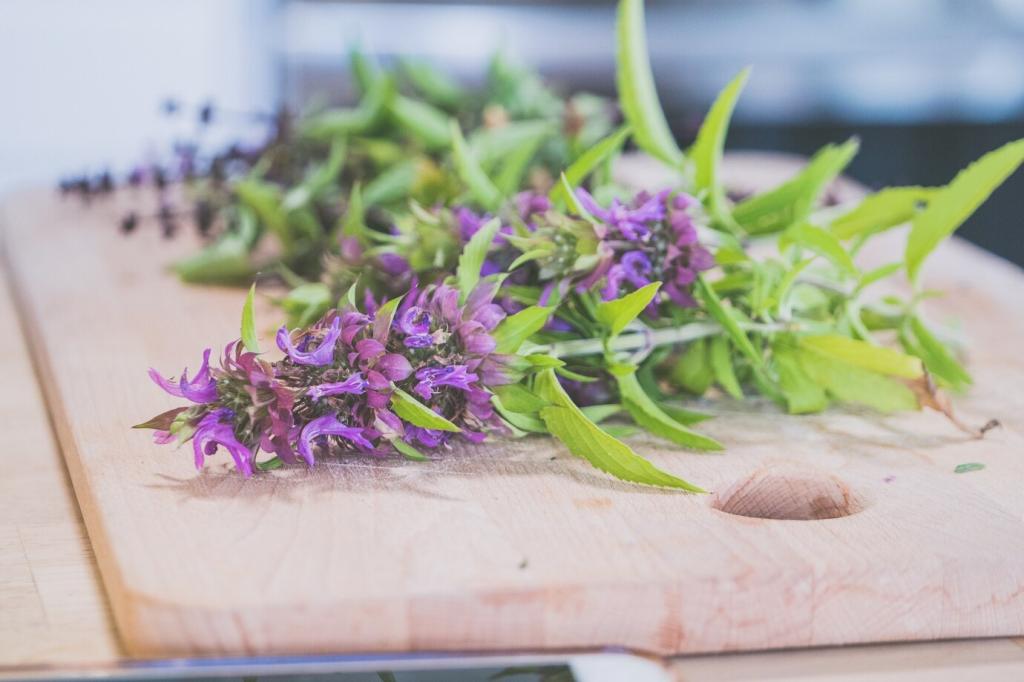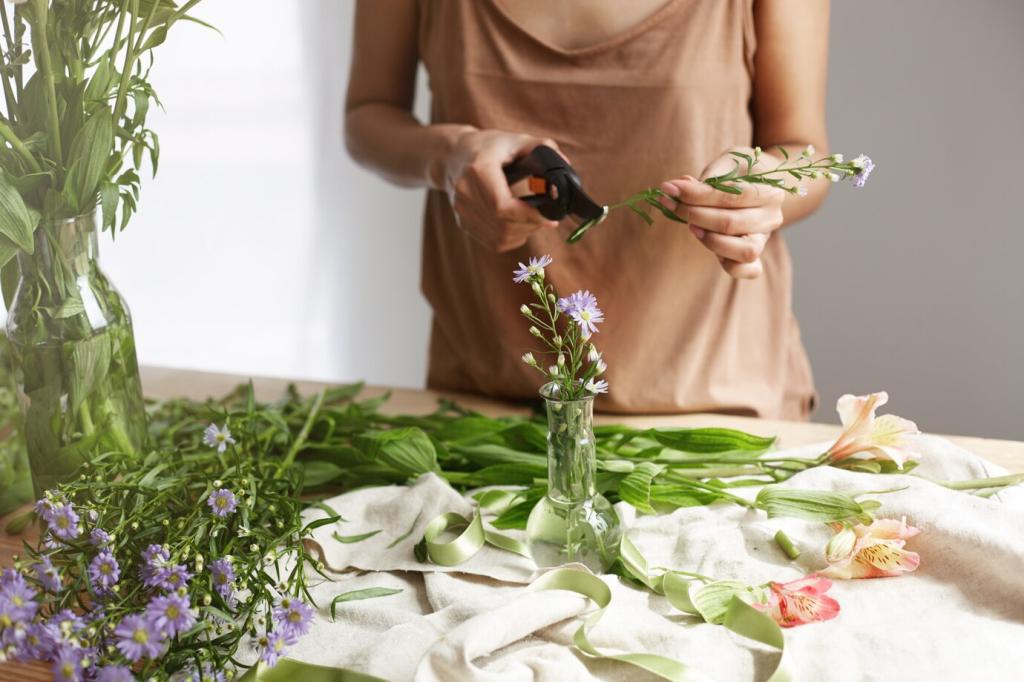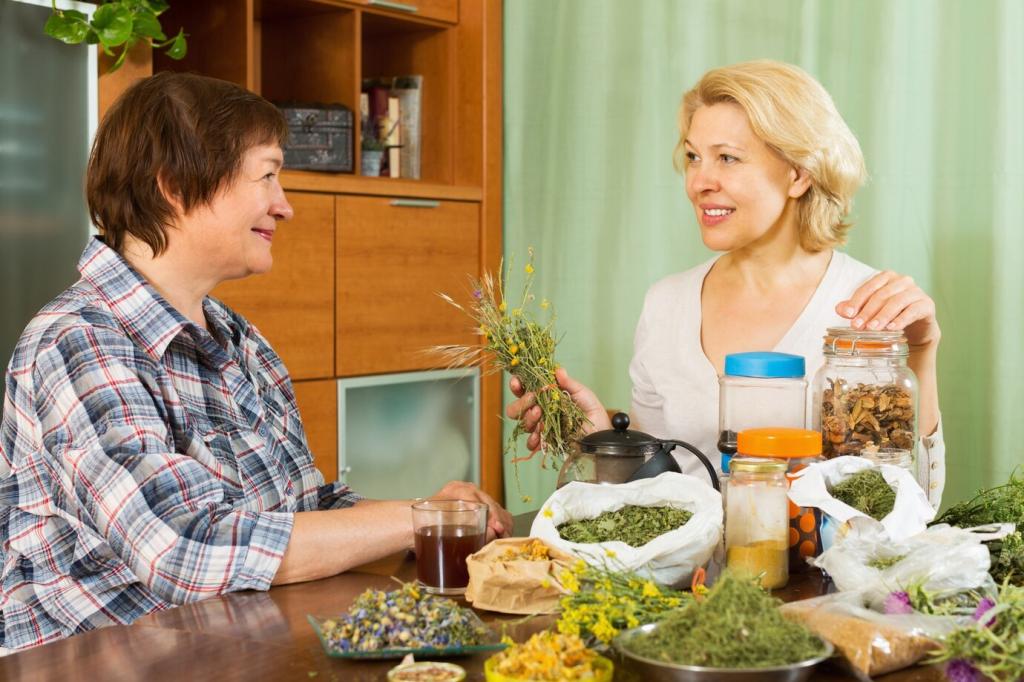Water Wisdom: Every Drop to the Right Root
Capture roof runoff in food‑grade barrels with screened lids to deter mosquitoes and debris. A simple hose and low emitter line can gravity‑feed containers. Label barrels by season, and track savings. Share a photo of your setup to inspire other readers.
Water Wisdom: Every Drop to the Right Root
Water at dawn to reduce evaporation and disease pressure, then soak deeply so moisture reaches the full root zone. Shallow sips invite weak roots. Our thyme doubled its drought tolerance after two weeks of deep, infrequent watering and careful observation.

